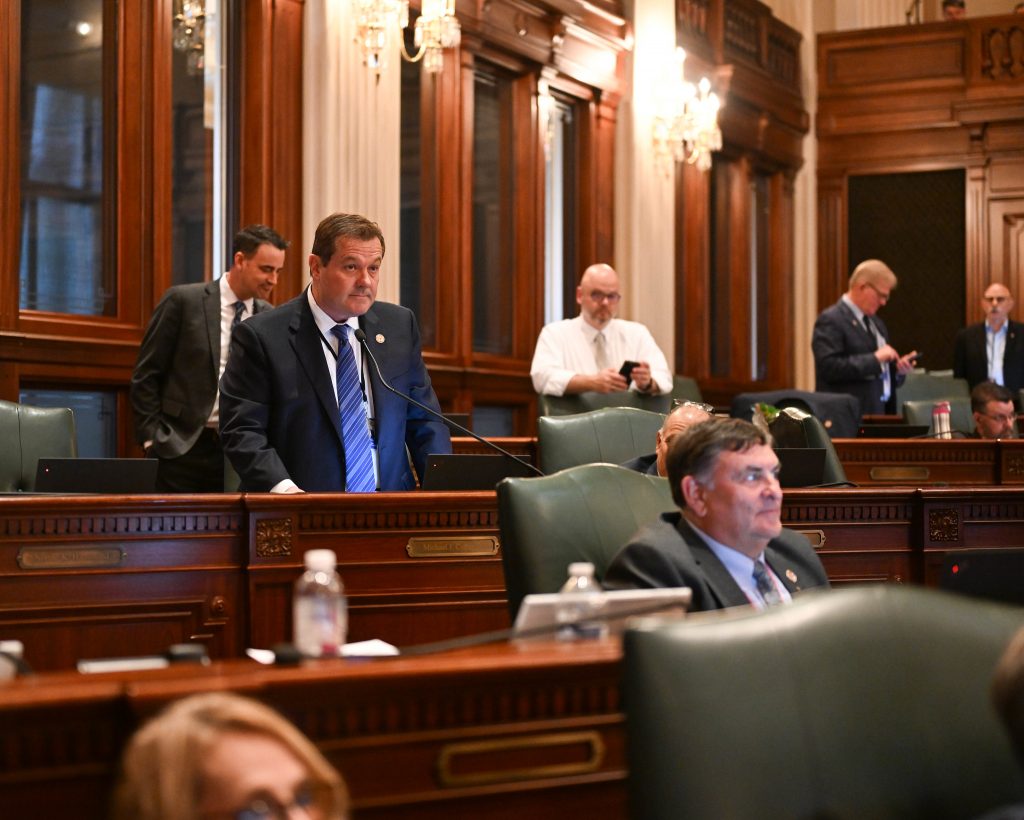Election Interference Law
The Illinois Supreme Court recently upheld a lower court ruling that declared a controversial sweeping election law passed by Illinois Democrats unconstitutional. Senate Bill 2412, which House Republicans nicknamed the “Katie Stuart Protection Act,” sought to end the longstanding practice of allowing local party organizations to appoint candidates to the ballot for the general election in uncontested legislative races. The slating process requires a candidate to collect and file signed petitions by registered voters within the respective district, but Democrats tried to eliminate the slating practice altogether.
Rep. Stuart, a Metro East Democrat, faced no opposition in the March Primary, but local Republicans slated a Republican candidate and filed the required petition signatures with the Illinois State Board of Elections hours before final passage of SB 2412. Governor JB Pritzker signed the measure only hours after telling reporters he had not seen all the details of the measure. The Governor signed the bill into law almost immediately following Senate concurrence with the House amendments.
State Representative Mike Coffey issued a statement about Illinois democracy after the bill passed the House.

“Election interference is an attack on our democracy and the Illinois Supreme Court made the right decision to rule SB2412 unconstitutional. The Statehouse represents the people of Illinois and the majority party needs to be transparent and honest about their motives for our state. The last minute gut-and-replace process of a bill is not how legislation should be conducted in Illinois.”
Under previous rules, political parties had a 75-day window following the primary election to slate candidates in races where no primary candidate had run. This provision allowed parties to ensure they had candidates in all races, even if the primary had failed to produce a nominee. The new law effectively eliminated this practice, forcing parties to rely solely on primary candidates for the general election, a move seen by many as a way to secure Democratic incumbents’ positions in the legislature by reducing competition.
The law was immediately challenged in court, as plaintiffs argued that the law was an unconstitutional attempt to interfere with the electoral process. The plaintiffs contended that the law violated their right to run for office and the voters’ right to choose from a full slate of candidates. That messaging was repeated by multiple House Republicans, who decried the law as a blatant attempt by Democrats to protect their more vulnerable incumbent members.
Sangamon County Circuit Judge Gail Noll ruled in favor of the plaintiffs, issuing a permanent injunction against the law’s application in the 2024 election. Judge Noll’s ruling was particularly critical of the timing of the law’s implementation, stating that it impermissibly burdened the plaintiffs’ rights by changing the rules in the middle of the election process. Judge Noll emphasized that while the General Assembly has the authority to modify election laws, doing so during an ongoing election cycle was unconstitutional.
The unconstitutional ruling was quickly appealed by Illinois Democrats to the Illinois Supreme Court, but Illinois’ highest court ultimately upheld Judge Noll’s decision.
